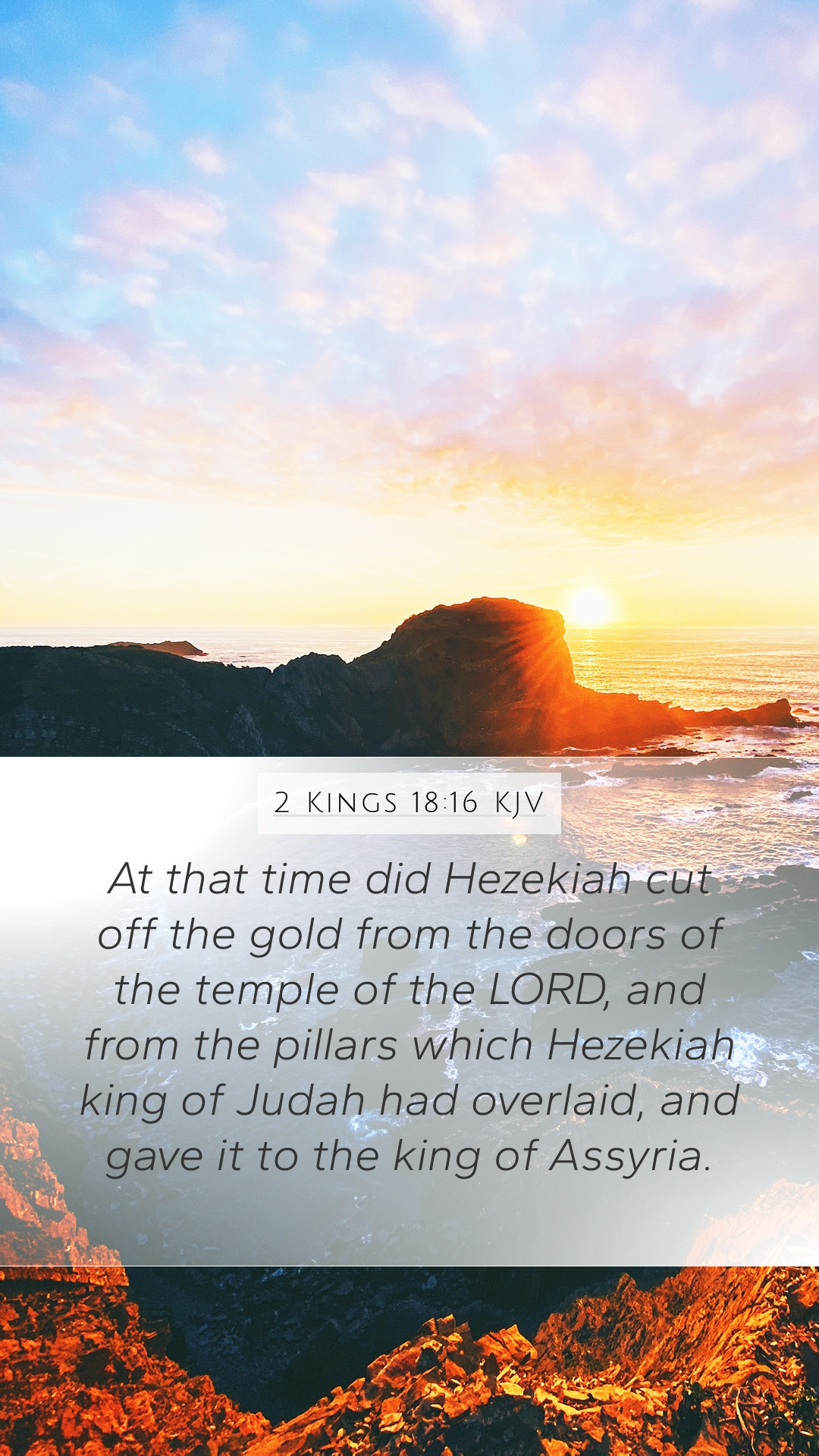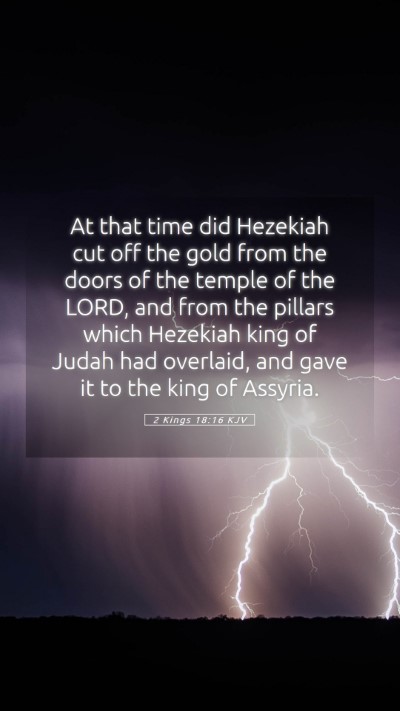Understanding 2 Kings 18:16
2 Kings 18:16 states: "At that time, Hezekiah stripped the gold from the doors of the temple of the Lord and from the pillars he had overlaid and gave it to the king of Assyria." This verse provides a crucial glimpse into King Hezekiah’s actions during a time of dire crisis for the Southern Kingdom of Judah.
Bible Verse Meanings
This verse can be understood in several layers, particularly in the contexts of historical, theological, and practical implications.
Historical Context
During Hezekiah’s reign, Assyria was a major world power, and King Sennacherib threatened Jerusalem. The stripping of the gold signifies the desperation of Hezekiah as he sought to appease the Assyrian kings to forestall destruction.
Theological Insights
From a theological perspective, Hezekiah's actions raise questions about faith and reliance on God. He turned to material wealth rather than solely trusting in God’s power to save, which is a reflection of human tendencies to seek immediate solutions in crisis.
Bible Verse Interpretations
Let’s explore the insightful interpretations from renowned commentaries.
-
Matthew Henry:
Henry notes that removing gold from the temple represents a moment of compromise and portrays Hezekiah’s political maneuvering amidst national distress. He emphasizes the idea that riches dedicated to God should not be used for secular purposes, showing a conflict of priorities.
-
Albert Barnes:
Barnes highlights that this act was both shameful and desperate; in attempting to buy peace, Hezekiah effectively showcased the vulnerability of Judah. His commentary stresses the necessity of steadfast faith instead of resorting to material compromises.
-
Adam Clarke:
Clarke elaborates on the implications of Hezekiah's actions, attributing it to fear rather than faith. He mentions how such decisions idealize human intervention over divine reliance, indicating a shift in trust during tumultuous times.
Bible Study Insights
This verse serves as a rich subject for Bible study groups, prompting discussions about faith under pressure and the moral dilemmas faced by believers.
- Applying Scripture: How can we remain steadfast in our faith when faced with overwhelming challenges?
- Understanding Difficult Passages: What lessons can be drawn from Hezekiah's compromise?
Understanding Scripture
To delve deeper into this passage, individuals may consider the broader narrative of 2 Kings and the prophetic warnings leading up to this incident.
Commentary on the Verse's Significance
The stripping of gold could symbolize a lack of reverence for God’s holiness when prioritizing self-preservation and safety. It is a reminder of the constant battle between worldly temptations and spiritual integrity.
Cross References
- Isaiah 36:6 - The Assyrian threat and mention of King Hezekiah.
- 2 Chronicles 32:4 - A parallel account of Hezekiah's actions during the siege.
- Isaiah 30:1-3 - A prophetic critique of reliance on Egypt instead of God.
Conclusion
In summary, 2 Kings 18:16 provides profound insights into human behavior, spiritual warfare, and the necessity of adhering to faith, especially in challenging circumstances. The actions of King Hezekiah serve as both a warning and a lesson in the importance of trusting God's providence over human ingenuity.


